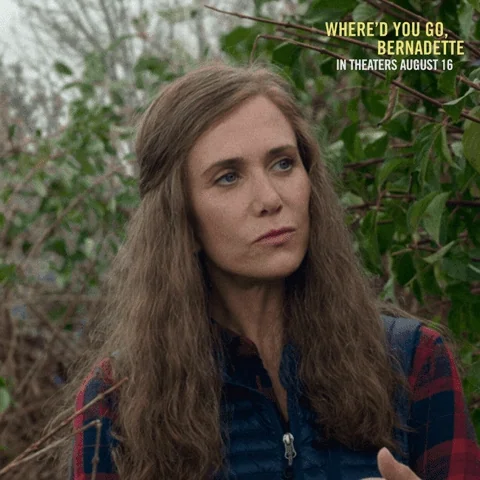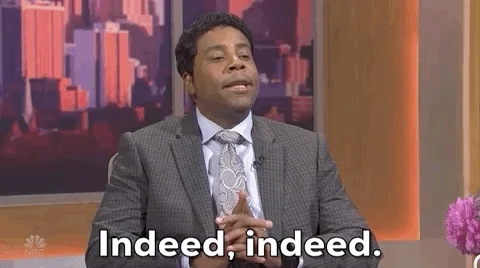Originally published at: Internet Archive loses book lending lawsuit | Boing Boing
…
I remember being at a library meeting online during Covid where we were fairly scathing about the bullshit prices they were forcing on us for ebooks that we needed. A publishers rep started whining about WIPO meetings and how big library were trying to steal everything for free from publishers….
If I could have reached through the screen I may have fetched them a slap…
Make no mistake, if libraries do die in the digital age, it won’t be irrelevance that kills us, it will be publishers killing us.

I’ve seen people cheering on the publishers. These people are wicked, gleefully dancing around the flames as centuries of archived knowledge burns. A thousand years from now, no one will even remember these people were ever alive but there is a sliver of a chance someone would know of their works if the Internet Archive survives this. They never will if it doesn’t, but I pray they remember they held a torch to Alexandria.
This ruling does seem tomake their demise more likely.
I mean, how different is checking out an electonic copy from the Internet Archive from doing so from the web site of my local library? ![]()

Your local library pays the publisher a fee to rent access to the book files.
Do you know how the IA works? They allow access to digital collections from libraries, which has already paid those fees.
This is more like forcing you to pay to check out a book in your local library. The publishers are seeking to make digital books more like a streaming service - where you pay for access.
It directly contradicts the mission of the modern library, which is allowing people to access as wide a swath of information has is possible, because it’s good for the public to be able to do so.
This article in The Verge goes into the history of this case a bit more, but one aspect really is fundamentally different: at one point in the pandemic the IA chose to open up their lending so that an unlimited number of people could check out books, regardless of how many copies the IA owned. Unfortunately the ruling in this lawsuit doesn’t just prevent that, but goes further into preventing unauthorized digital lending at all.
In retrospect they probably knew that they were playing with fire when they decided to loan out unlimited copies, because the publishers were always going to fight back on that. But the rest of this ruling is definitely bullshit and way too broad.
Thanks. That explained a lot of what’s going on here @Otherbrother!
It’s very similar to the dawn of digital music sharing when the publishers had years to come up with a simple solution that would allow them to get paid, prevent unauthorized use and retain all relevant rights. But instead they chose litigation, threats to their customer base and fighting innovation. They could have wholly owned digital music sales and sharing and still made massive profits, but instead waited around until a computer company pantsed them and they were essentially forced to accept a 30 margin cut because they were the only game in town. It was such a failure on their part and a success for Apple that they are no longer even called “Apple Computers”.
See also: video streaming, MLB & NFL broadcast rights, academic research publications et al.
It does seem like the Archive got out over their skis a bit, but only because of the belligerence and greed of publishers.
I thought, for the most part, the IA’s scans were of books that they physically had warehoused. Originally, the idea being they only let one person check out a book at a time, the e-scan is essentially the equivalent of the physical book, so it’s the moral and legal equivalent of lending a physical book without the hassle.
There are exceptions for public domain works, and of course there’s all those items uploaded, not necessarily legally, by the IA community.
Maybe that’s the case? I know they have relationships with various public libraries, too - which might just be collections of either public domain books or digitized special collections?
https://archive.org/details/americana
![]()
What I do know is that if I can’t find a book locally, the IA often does have it available to check out online…
Bit of both perhaps:

I understand the arguments on both sides, so I’m undecided on books still under copyright, but if sharing a book for free doesn’t increase sales, publishers should stop sending out free copies to celebrities, book reviewers and politicians.
In reality, this ruling if it stands means that all libraries can be undermined, starting with digital copies. The logic at play is that the text is a copyrightable product that can only be accessed for cash. ![]() I see no reason why publishers couldn’t use this to demand less access to physical libraries in the future. Or at the very least, as more and more of our culture became digitized, less physical books are going to be made, and more publishers will depend on digital copies for sales, and then use this to bar all digital access that isn’t paid for directly by each user. It will be a disaster for the public and a disaster for writers, who will get paid less for an ebook than for a physical copy.
I see no reason why publishers couldn’t use this to demand less access to physical libraries in the future. Or at the very least, as more and more of our culture became digitized, less physical books are going to be made, and more publishers will depend on digital copies for sales, and then use this to bar all digital access that isn’t paid for directly by each user. It will be a disaster for the public and a disaster for writers, who will get paid less for an ebook than for a physical copy.
There are no winners on this one. What IA did was blatantly wrong, but publishers are scabs and ripping off brick and mortar libraries endlessly. I can’t root for either side. The ruling is ultimately legally correct, but the entire system is morally bankrupt.
Yeah we have a fundamental problem no one has really figure out how to deal with yet. Way way way way way back in the days before the printing press was invented, copyright wasn’t a thing because copying any written work had to be done by hand, and so there really wasn’t any money in it. Not enough to warrant doing it without permission of the author, anyway. Then the printing press made copying written works a lot faster and cheaper. Still not free, though. But now, people wanted to protect the authors and/or publishers or written works. Otherwise, if you wrote a book, you’d never make much money off it because others could just crank out copies of it and cut you out of the process entirely. Thus…copyright law. And other innovations came along that made copying and printing better and cheaper, but always…there was a physical original, and everything else was a copy of that. And so you could attach rights to that original and to making copies of it. But today…there is no physical original. Everything is digital. What’s the original? A file on the author’s computer? Probably not, because they probably renamed that file a dozen times and moved it around on their laptop, and to the cloud and back, and who the hell even knows where the original file even is. “Original” doesn’t even have any meaning anymore. It’s a legal fiction, and in reality, everything is a copy, and making more copies and distributing them has become essentially free. It literally costs nothing, once the final digital form of the book has been produced, to make copies of that and to distribute those copies to anyone via downloads. So we have an intellectual property protection model that’s designed for the copying of physical objects, but we’re applying it to digital objects, and it’s not really working. I don’t know how to fix any of this, by the way. I’m not sure anyone does. But I haven’t seen that many people acknowledge that we have such a fundamental problem with copyright that probably can’t be fixed by making incremental modifications to the system.
